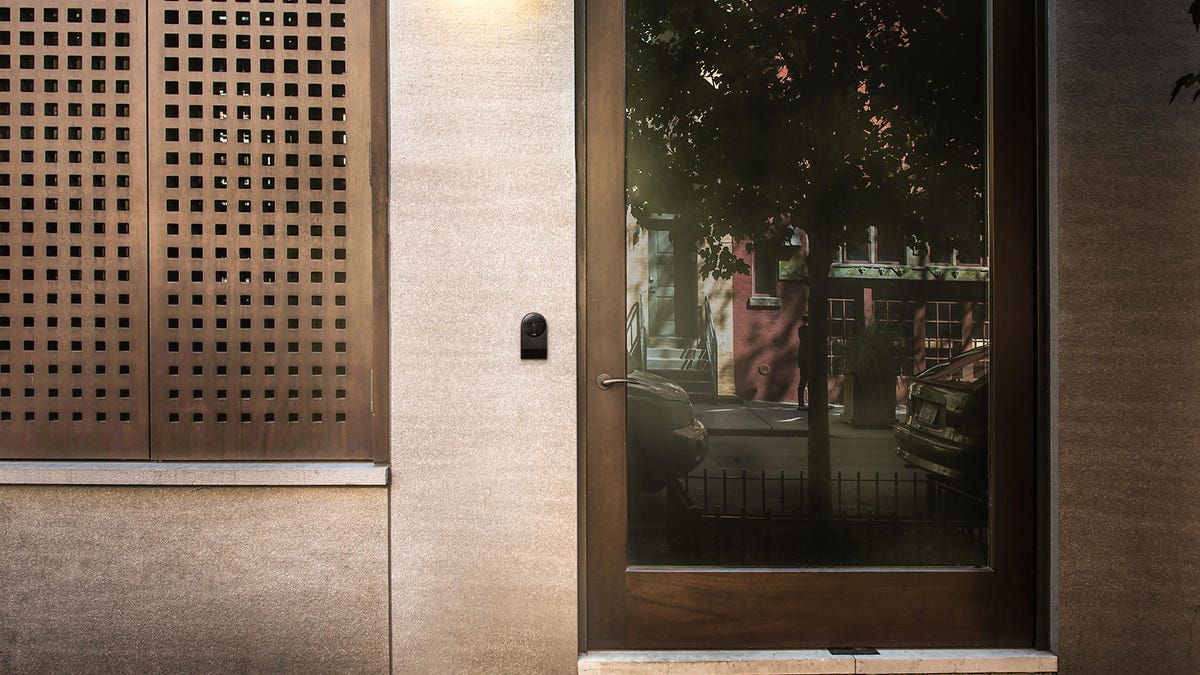Tenants win as settlement orders landlords give physical keys over smart locks
It's good news for tenants who didn't want smart locks and apps tracking their activities.

The Latch R Series smart lock is designed for apartment building access.
The physical key has prevailed over the smart lock for a group of tenants with privacy concerns.
In a settlement released Tuesday, a judge ordered landlords of an apartment building in New York to provide physical keys to any tenants who don't want to use the Latch smart locks installed on the building last September.
The settlement is a first, as there's no legal precedent or legislation deciding how landlords can use smart home technology. Since the technology is relatively new, lawmakers haven't had time to catch up with smart home devices, and this case in New York is one of the few legal challenges to appear in court. It won't set a legal precedent because it's a settlement, but it represents a win for tenants who had issues with smart locks and landlords installing them against their will.
"This is a huge victory for these tenants and tenants throughout New York City. These types of systems, which landlords have used to surveil, track and intimidate tenants, have been used frequently in New York City," Michael Kozek, the attorney representing the tenants in Manhattan, said in a statement. "These tenants refused to accept the system, and the negative impact it had on their lives. Hopefully they will be an inspiration for other tenants to fight back."
Mary Beth McKenzie, her husband, Tony Mysak, and a group of tenants sued their landlords after the landlords installed the smart locks last year, arguing that there were privacy concerns with the Latch smart lock and the app required to get into their own building.
Mysak, who's 93, wasn't capable of using a phone and found himself trapped in his home because of the smart locks, McKenzie said. The plaintiffs also had issues with Latch's privacy policy, which said that the app could collect people's location data and use it for marketing purposes. Latch said it didn't do that and was revising its privacy policy.
Latch's smart locks are installed in more than 1,000 buildings in New York, and this case's settlement could mean future challenges from tenants who also have privacy and security concerns.
"Latch was not a party to this litigation," Si Dhanak, Latch's vice president of product, said in an email. "We are pleased the parties -- a group of five tenants and the building owner -- have reportedly reached a private settlement to resolve their disagreement about entry methods to their building's common spaces. At Latch, we know people have personal preferences about how they access their homes."
The settlement also stated physical keys were a "required service" for the landlords, and that any smart entry system in the future wasn't considered a required service. If the landlords don't provide physical keys, the tenants can bring the issue to court again, documents showed.
Lisa Gallaudet, the landlords' attorney, said the smart lock was on a single door and that tenants were able to enter a numeric code to get in and didn't need an app. They'd also been offered codes they could enter without a phone. She said characterizing the settlement as a win for the tenants is "misleading."
"The only reason this settled is because my client didn't want to waste more time and energy on this," Gallaudet said. "This was by no means a reflection of the court's opinion on how it would rule on this issue. It is my opinion that we would have succeeded on our motion. However, when parties come to an agreement to resolve litigation, it's a win for both sides."
Though the case ended in a settlement, the tenants consider it a victory because it's one of the first legal challenges to smart locks installed by landlords.
"This agreement takes back for the tenants some control over the technology used to control entry into buildings," said Seth Miller, an attorney who represented another client in the case. "The building code requires that the entrance door be controlled by the tenant's key, not by an internet app."
Originally published May 7, 1:47 p.m. PT.
Update, 8 p.m.: Adds statements from the landlords' lawyer and from Latch.

